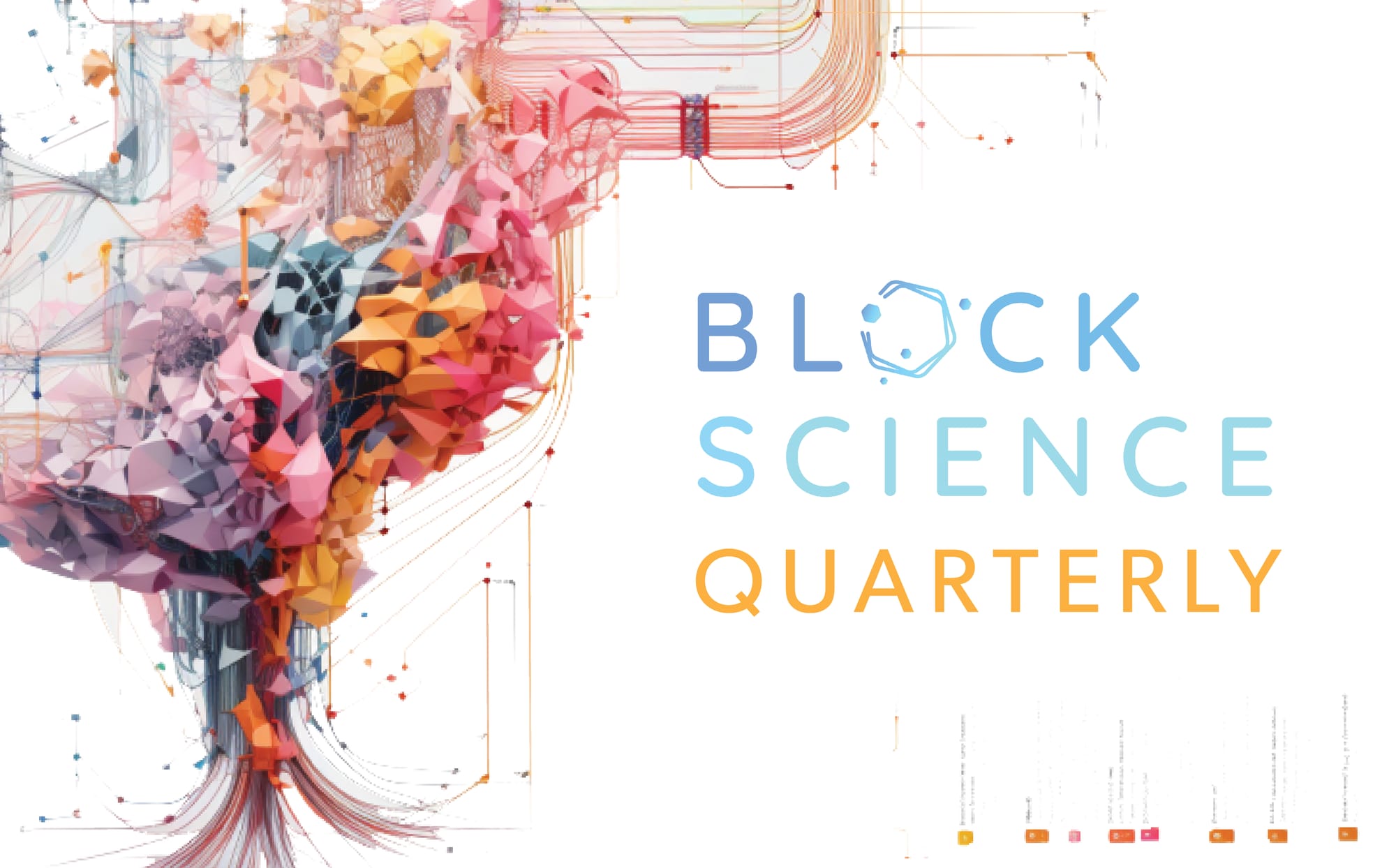Welcome to the BlockScience Quarterly newsletter – autumn edition! 🍂 As the season changes, we’re excited to share our latest work on emerging technologies, innovation, and their impact on society.
In this edition, we turn the lens inward, exploring how BlockScience operates as a cybernetic organization, applying systems thinking to build adaptive, resilient institutions. We also dive into groundbreaking research on data intermediary networks and explore the delicate balance between simplicity and complexity in digital infrastructure through foundational principles like Occam's Razor and Ashby’s Law.
Additionally, we introduce a new grant program for researchers to investigate algorithmic policymaking in Web3 and invite you to explore the evolving role of trust and governance in decentralized systems. With contributions from our experts on economic systems and the intricate balance of norms and institutions, this collection provides a comprehensive look at how technology is shaping the future.
Papers & Articles
BlockScience as a Cybernetic Organization (Cyb-Org)
In this article, we reflect on our own organization and explore how we use systems thinking and organizational analysis at BlockScience. By mapping our internal structure, we share insights on building more adaptive, resilient organizations in complex environments.
Data Intermediary Networks
In this article, Dr. Kelsie Nabben, senior social scientist, shares insights from her recent research on "data intermediary networks." She explores how these networks, built on data mesh architecture, foster cooperation among data operators and unlock new value in decentralized data ecosystems.
Grant Program Announcement: Empirical Investigations of a Digital Frontier
OpenTeams Incubator, BlockScience, and Token Engineering Commons have launched a small grants program. The program invites data and computational scientists to explore algorithmic policy-making in Web3 through empirical research. Apply your expertise to this digital frontier and submit your proposals today here.
Norms, institutions, and digital veils of uncertainty—Do network protocols need trust anyway?
In this paper, Eric Alston explores how norms and institutions interact with digital governance, focusing on the uncertainty faced by networked organizations. Alston argues that while institutions provide structured rules to mitigate "known unknowns" by defining behavior and penalties, they remain incomplete in addressing the full range of unpredictable events and human actions. Norms, which shape behavior automatically within communities, serve as a complementary mechanism to fill these gaps, particularly in periods of uncertainty. The paper highlights how digital organizations must integrate both institutional flexibility and community-driven norms to adapt to the complexities of networked environments.
Videos & Talks
Knowledge Organization Infrastructure
In this video, Orion Reed and Luke Miller dive into the Knowledge Organization Infrastructure (KOI) we've been developing. You'll learn about key design principles, like reference identifiers (RIDs), digital objects, and temporal identity, all aimed at improving how we organize and manage knowledge. Our approach emphasizes the importance of referencing existing knowledge rather than recreating it, supports multiple perspectives, and avoids relying on a singular version of truth.
What do people mean when they say economics? w/ BlockScience Chief Engineer Dr. Michael Zargham
In this short video clip, Dr. Michael Zargham shares his insights on the meaning of "economics" during the June 2024 meeting of The Open Source Science Economics Interest Group, where he serves as Co-Chair. Drawing from the New York Federal Reserve's "Fields of Study in Economics," Zargham explores the broad scope of economic fields and emphasizes the need for innovative approaches, such as computational methods and open-source practices, to drive economic impact. You can watch the entire seminar here.
Ecosystem
Killswitch Protocols Or On Engineering Recursive System Death
In this paper, our senior researcher Eric Alston, along with Seth Killian, and Garrette David, wrote this article exploring the concept of "killswitch protocols"—the mechanisms designed to intentionally stop systems that could spiral out of control. Using examples from nuclear reactors to online communities, they ask critical questions about when and how systems should be shut down, and who holds the power to execute these failsafes. This piece navigates the complex tradeoffs involved in killswitch design, governance, and the inevitable shortcomings of these protocols in both digital and physical worlds.
An Ethnographic Sublime in The Land of the Unreal (Review Essay)
This review essay explores Lisa Messeri’s ‘In the Land of the Unreal,’ an ethnography that reclaims a sense of place within the seemingly boundless realm of virtual reality. The book juxtaposes the landscapes of Los Angeles and the immersive worlds of VR, examining their social, technological, and gendered implications. In addition to Messeri’s work, the essay highlights the contributions of Kelsie Nabben and Michael Zargham, whose ethnographic research titled The Ethnography of a ‘Decentralized Autonomous Organization’ (DAO): De-mystifying Algorithmic Systems’, which sheds light on how blockchain and DAOs may offer new forms of social and organizational engagement, or fall into familiar traps of inequality and unrealized promises. Together, these works provide a critical lens on how the convergence of the virtual and real can reshape understandings of place, identity, and technology’s social potential.
Fundamentals of Systems Engineering
In Episode 6 of the podcast, Fundamentals of Systems Engineering, Andrew Clark and his team explore how AI and data science can benefit from systems engineering. They discuss building robust AI models, the importance of safety and criticality, and how systems thinking from Bell Labs to NASA’s Apollo program can improve AI innovations and business decisions.
🙏 Thank you for your very valuable attention and stay tuned for the next quarterly newsletter.
From our team to yours… Enjoy the vibrant colors of autumn! 🍂
ABOUT BLOCKSCIENCE
BlockScience® is a complex systems engineering, R&D, and analytics firm. By integrating ethnography, applied mathematics, and computational science, we analyze and design safe and resilient socio-technical systems. With deep expertise in Market Design, Distributed Systems, and AI, we provide engineering, design, and analytics services to a wide range of clients including for-profit, non-profit, academic, and government organizations.


